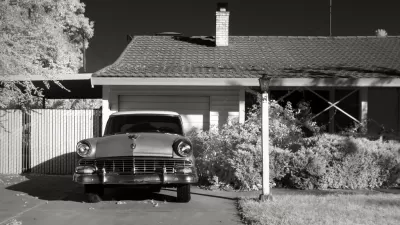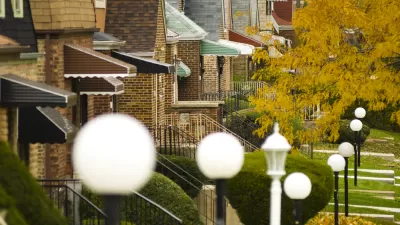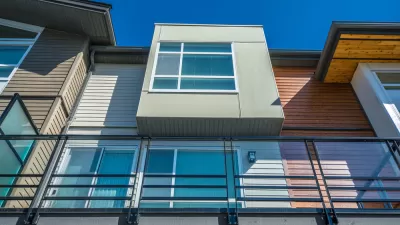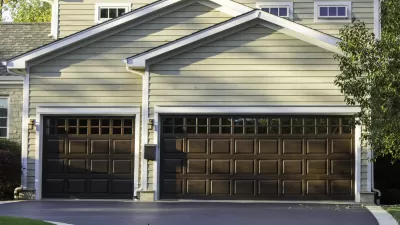While suburbs are changing, that doesn't mean they are declining, according to recently published research.

Whitney Airgood-Obrycki writes that "recent patterns of increasing poverty, greater racial diversity, widespread foreclosures, and fiscal distress" is changing the 20th century narrative about U.S. suburbs. Gone are the days of idyllic WASP homes.
But does that mean that suburbs are in decline? Airgood-Obrycki thinks narratives of decline are overstated—laying out that case in a new paper, "Suburban Status and Neighborhood Change," published online by the Urban Studies journal.
Airgood-Obrycki "examined status changes from 1970 to 2010 for city and suburban neighborhoods in the nation’s 100 most populous metros," using Census tracts as the unit of measure as a proxy for neighborhoods.
As for findings, Airgood-Obrycki explains: "While there was some evidence of suburban status decline over the study period, I found that high-status neighborhoods were and continue to be disproportionately located in suburban communities. The share of top quartile neighborhoods located in the suburbs rose from 68 percent in 1970 to 75 percent in 2000 before falling slightly to 74 percent in 2010."
FULL STORY: Are the Suburbs Losing Status?

Maui's Vacation Rental Debate Turns Ugly
Verbal attacks, misinformation campaigns and fistfights plague a high-stakes debate to convert thousands of vacation rentals into long-term housing.

Planetizen Federal Action Tracker
A weekly monitor of how Trump’s orders and actions are impacting planners and planning in America.

San Francisco Suspends Traffic Calming Amidst Record Deaths
Citing “a challenging fiscal landscape,” the city will cease the program on the heels of 42 traffic deaths, including 24 pedestrians.

Defunct Pittsburgh Power Plant to Become Residential Tower
A decommissioned steam heat plant will be redeveloped into almost 100 affordable housing units.

Trump Prompts Restructuring of Transportation Research Board in “Unprecedented Overreach”
The TRB has eliminated more than half of its committees including those focused on climate, equity, and cities.

Amtrak Rolls Out New Orleans to Alabama “Mardi Gras” Train
The new service will operate morning and evening departures between Mobile and New Orleans.
Urban Design for Planners 1: Software Tools
This six-course series explores essential urban design concepts using open source software and equips planners with the tools they need to participate fully in the urban design process.
Planning for Universal Design
Learn the tools for implementing Universal Design in planning regulations.
Heyer Gruel & Associates PA
JM Goldson LLC
Custer County Colorado
City of Camden Redevelopment Agency
City of Astoria
Transportation Research & Education Center (TREC) at Portland State University
Jefferson Parish Government
Camden Redevelopment Agency
City of Claremont





























